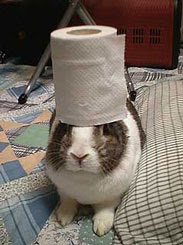manticle
Standing up for the Aussie Bottler
There are other methods to deal with chloramines. Campden is one I'll grant but not the only. Unnecessary for melbourne water

thanks for that mate, I also think it's most likely the tap, or dry hopping that did it on the last batch.. not that I'm going to stop doing that just wont bother with a bag and shot glasses..mattdean4130 said:FWIW - and this comes with a disclaimer that i know absolutely nothing and have never attempted anything harder than a tin of coopers and some hops, but last year i had three brews in a row fail. All tasted like vinegar.
I bleached the **** out of my PET bottles, fermenter and everything in contact with the wort etc after failed brew one, and in between 2 & 3. One thing i didn't do was disassemble my tap (because at the time i didn't realise it pulled apart)...
Well, after an extended hiatus of brewing (because of said failures, and wasted money, and frustration) i finally got the nerve to get back into brewing. I got some pink powder stuff from my local brew shop that burns my nose if i get a whiff - i soaked everything including my pulled apart tap in that. I also did the same with bleach, and repeated. I moved to glass and threw the PET bottles (just seems that much cooler bottling with glass anyway) - i'm two weeks bottled into the first brew i've done back and there's no vinegar. Infact, they're tasting quite nice (a little malty, but they're very young!).
I'm unsure whether my problems were bottles (as i've heard from a couple of locals PET's are renowned for harboring bacteria), or something else. What i do know though, is those taps are a haven for bacteria when inspected pulled apart. Lots of tiny little nooks and cranny's...
My tap was a coopers kit tap,
That might have all been a waste of time, but i thought i'd share anyway.
I'm suggesting eliminating variables, not that water chem will create an infection. You're not sure whether it's water xhem or infection or something else. Take water chem out of the equation for now.Mizz said:yeah that's reasonable but an infection isn't going to stop me learning this stuff! if i make a beer and everything turns out fine with the intense clean out I want it to be great beer not average beer. The water chem won't stop or create an infection. I've played with it once on a porter (chalk and cal chloride) and it's better than the others.
Yeah thanks manticle. I'm not the kind of guy to take things slow.. but I do feel the water chem could be a big help and would love to know what you guys are doing to it.. I would like as much assistance as possible!manticle said:I'm suggesting eliminating variables, not that water chem will create an infection. You're not sure whether it's water xhem or infection or something else. Take water chem out of the equation for now.
More than happy to help with understanding whys and wherefores esp. since we share the same water source but I suggest, strongly, that you deal with one issue at a time.
Said my piece now. Let me know if you want assistance eith tasting, water chem reading etc and we'll arrange it separately to this thread.
Well if you don't, then I'm not sure who does./// said:Who knows
I take the very scientific approach of an eyeballed heaped teaspoon of either Gypsum or CaCl in the mash tun.Mizz said:porter 1.012 IPA
Yeah thanks manticle. I'm not the kind of guy to take things slow.. but I do feel the water chem could be a big help and would love to know what you guys are doing to it.. I would like as much assistance as possible!
